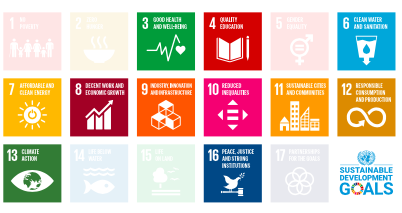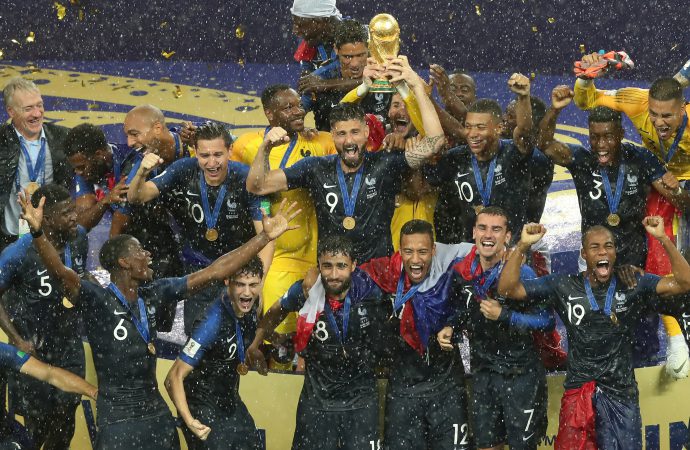World football governing body outlines its sustainability vision, with five key pillars and 22 objectives in line with the UN Sustainable Development Goals
FIFA and Qatar’s organising committee have unveiled their sustainability vision for the 2022 World Cup, pledging to “set a new benchmark” for the sustainability of mega sporting events.
The joint sustainability strategy has been broken down into five pillars – environmental, social, human, governance and economic – with 20 material topics and 22 strategic objectives falling under those areas.
Five objectives have been identified under the environmental pillar, related to the construction of sustainable venues, the measurement, mitigation and offsetting of all carbon emissions, using technology to minimise air pollution, the promotion of waste management and recycling solutions, and the conservation of water.
Safeguarding the rights of workers has been a challenge for FIFA and the Supreme Committee for Delivery and Legacy since stadium construction began, and this is reflected in the human objectives.
These include goals around ensuring decent working and living conditions for World Cup 2022 workers and “access to effective remedy”.
The human pillar of the strategy also focuses on the development of a strong workforce in the sport and events sector in Qatar, and the empowerment of young people in the region through football programmes.
Social objectives include access for disabled people or those with limited mobility, cultural exchange promotion, accessibility to matches for people from low-income backgrounds, media professionals’ rights, and health and safety provisions for all involved.
To catalyse economic development in the region, the strategy outlines three objectives: enable local businesses to become suppliers for the tournament, transform stadiums into assets for long-term community and business use, and promote the use of adaptable, efficient technology.
In terms of governance, Qatar 2022 will aim to achieve certain standards and use systems to achieve its goals. The ISO 20121 sustainable event management system, originally developed for the London 2012 Olympic and Paralympic Games, will be used to maintain and review sustainability efforts.
FIFA and the organising committee will additionally apply sustainable procurement and licensing practices, and comply with legal and regulatory requirements.
According to the strategy, the 2022 World Cup will “build a sustainable and lasting legacy that contributes both to FIFA’s vision and Qatar’s national development goals.”
The strategy has been aligned with the United Nations’ Sustainable Development Goals, with 11 of the 17 identified as the areas where the World Cup could deliver most impact: good health and wellbeing (SDG3), quality education (SDG4), clean water and sanitation (SDG6), affordable and clean energy (SDG7), decent work and economic growth (SDG8), industry, innovation and infrastructure (SDG9), reduced inequalities (SDG10), sustainable cities and communities (SDG11), responsible consumption and production (SDG12), climate action (SDG13), and peace, justice and strong institutions (SDG16).

Fatma Samoura, FIFA’s secretary general, said the 2022 World Cup was a “unique opportunity to bring about positive change.”
“All critical topics related to the event have been identified and duly addressed in this strategy, such as workers’ welfare, human rights, non- discrimination and environmental protection. The document is also in line with the UN’s Sustainable Development Goals, and we are committed to contributing to those through the power of football and of the biggest single-sport event on the planet,” she added.
HE Hassan Al Thawadi, the Supreme Committee secretary general and Q22 chairman, said: “When Qatar bid to host the FIFA World Cup 2022, it did so with a vision to use the tournament as a catalyst for sustainable, long-term change in Qatar and across the Arab world.
“From the start, we believed in the power of football and the FIFA World Cup to inspire innovation, to build bridges between cultures and peoples and to accelerate positive social transformation. Our measure of success for the tournament in Qatar will ultimately be the legacy it leaves behind. This strategy will help Qatar to realise that vision and ensure its success.”










1 Comment
Neill Duffy
January 24, 2020, 1:05 amGreat to see FIFA and Qatar making this bold pledge. However, with less than 2 1/2 years to go to the event I am skeptical about their ability to pull it off without resorting to offsetting en mass. I am also interested to understand when their "impact clock" starts – now, or from the date on which Qatar was awarded the event – I hope it’s the later. Wouldn’t it be great to see FIFA and Qatar take a leaf out of Microsoft’s book and hold themselves accountable for their negative impacts from day 1 of this chapter of FIFA World Cup. I, for one, shall be watching all of this closely and hope my skepticism proves to be misplaced.
REPLY